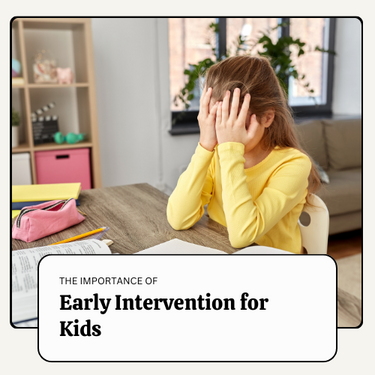
It’s not uncommon for children to struggle with emotional or behavioral issues from time to time. But, when those issues linger, you might start to get worried.
Unfortunately, many parents don’t get their children the mental health help they need in a timely manner. You might think certain behaviors are normal. Or, you might be hearing from friends and family members that certain things are just a “phase”.
The reality is, kids don’t readily grow out of mental health issues.
The longer you wait to get your child the help they need and deserve, the harder things can be for them (and you).
So, how do you know when it’s really time to get professional help for their mental health? Let’s look at a few telltale signs.
Behavioral Issues
Again, it’s not necessarily uncommon for children to act out sometimes. But, as a parent, you should be able to see clearly when behavioral issues become a problem.
If your child is disruptive in school, or their behavior is causing discord within your family, it’s time to seek help. They might seem “out of control” and not have remorse for their actions. That can make them a danger to themselves and others.
A therapist or counselor can help your child uncover the “root” of what they’re feeling and what’s causing them to act out. Peeling back those layers is important, so if you notice your child’s behaviors disrupting their life, don’t be afraid to seek help.
Emotional Issues
Maybe your child isn’t acting out in negative or dangerous ways. But, if you’ve noticed some changes in their emotions, it could also be a sign of something bigger going on.
You know your child better than anyone. If they seem sad or anxious for an extended period, consider it a red flag. If those feelings impact their life, it’s a problem. Sometimes, such strong emotions can interfere with growth and development. They might struggle in school, withdraw from things they love, and stop spending time with friends.
It’s hard for parents to see their kids suffering, so the best thing you can do in these situations is to get your child some help. The concept is the same—uncovering the underlying cause(s) of what they’re feeling. Kids can’t always process their feelings on their own. That’s what makes it so easy to fall into behavioral issues or emotional struggles.
Don’t Wait or Hesitate
The best thing you can do for your child is to pay attention. You should be their first line of defense, even when they don’t necessarily “want” it.
Obviously, some red flags are more prominent than others. If your child is purposely hurting themselves or talking about hurting themselves or someone else, take action immediately. But other signs could be more subtle. It’s important to understand some of the warning signs of depression and anxiety, so you can pick up on your child’s struggles sooner.
Here are some of the signs that parents should look out for, which could indicate that their child might be struggling with anxiety or depression and need professional help:
It's important to remember that not all children will exhibit the same signs, and some may be more subtle than others. This is not an exhaustive list, but if you notice any of these signs, or you feel something is just "off" with your child, it's important to have an open and honest conversation with your child, and consider seeking the advice of a mental health professional. Early intervention and treatment can make a big difference in helping your child manage their symptoms and regain their quality of life.
Keep up constant communication to “check-in” with them. Even if they aren’t behaving in any way that seems “off” for them, simply talking to them about their feelings and what they might be going through can help. It gives them an opportunity to really express themselves. It also gives you the chance to really see if anything is going on beneath the surface.
If you’re concerned about your child’s mental health, don’t wait to get them the help they need. While it might not be easy to think about having your child see a therapist or counselor, it’s often the best way to help them now, so they can find freedom from anxiety and depression in the future.
Search our directory to find licensed therapists in your state who are accepting new clients for in-person and virtual counseling appointments.

Sign up for our newsletter to get instant access to parenting resources sent directly in your inbox!
